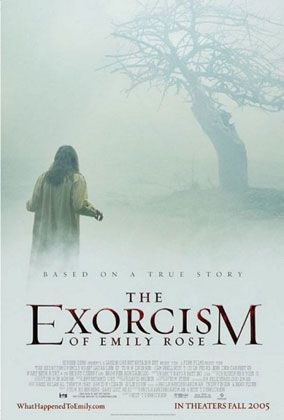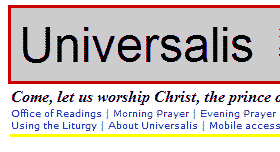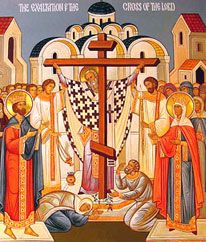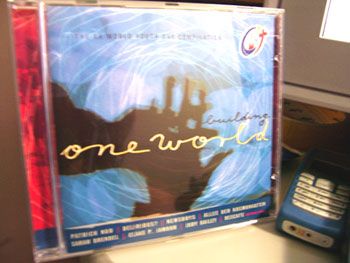Cinderella Man is a wholesome slice of old-fashioned Americana, offering welcomed relief from the shallowness of many summer blockbusters. In dramatizing the legendary Depression-era comeback of impoverished boxer Jim Braddock, director Ron Howard benefits from another superb collaboration with his A Beautiful Mind star Russell Crowe, whose portrayal of Braddock is simultaneously warm, noble, and tenacious without resorting to even the slightest hint of sentimental melodrama. The desperate struggle of the Depression is more keenly felt here than it was in Seabiscuit, and Howard shows its economic impact in ways that strengthen the bonds between Braddock, his supportive wife (Renée Zellweger) and three young children, and his loyal manager (Paul Giamatti); all are forced to make sacrifices leading up to Braddock's title bout against heavyweight champion Max Baer (Craig Bierko) in one of greatest boxing matches in the history of the sport. Boasting the finest production design, cinematography and editing that Hollywood can offer, this is a feel-good film that never begs for your affection; it's just good, classical American filmmaking, brimming with qualities of decency and fortitude that have grown all too rare in the big-studio mainstream
Friday, September 30, 2005
Movie of the Month: Cinderella Man
Wednesday, September 28, 2005
The Exorcism of Emily Rose
 Dear friends,
Dear friends,Some of you may have seen over the last year or so that I have sounded the alarm in several Catholic magazines about a couple of viciously anti-Catholic movies disguised as "history" : "King Arthur" (2004) and "Kingdom of Heaven" (2005).
I have just been to see another new movie about the Church, with the full expectation of being provoked into circulating yet another "thumbs-down" warning about it among people like yourselves.
Well . . . Halleluia! Would you believe that that particular expectation of mine has just been smashed - astonishingly, wonderfully! - into smithereens? Can anything morally or spiritually good come out of Hollywood - especially in this day and age, more than half a century after the "good old" days when some movie moguls were (putatively at least) "on our side"? To my utter amazement, I now have to admit that the answer is 'Yes"! Divine grace - actual if perhaps not yet necessarily sanctifying - may be having its effect even in Tinseltown!
Ever since the big box-office success of the original version of "The Exorcist" more than thirty years ago, exorcism-flicks have become a sort of sub-division of the horror movie genre. Most of them have been pretty trashy, depending mainly on sensational special effects and frequently embodying malicious and embarrassingly ignorant caricatures of Catholic beliefs, rites and practices.
Not this time. "The Exorcism of Emily Rose" gets it right. Scarily, yes, but at the same time beautifully, powerfully - inspiringly. This one is the real thing, folks. (I speak as a priest who has had direct experience with real-life exorcisms: in Rome, with Fr. Gabriel Amorth, the Pope's leading exorcist and author of several books on the subject.)
Like "The Exorcist", "Emily Rose" has its basis in a true case-history, but is far superior to the former movie in just about every respect. It's about a 19-year-old American girl from a conservative/traditionalist Catholic family, who becomes possessed and eventually dies in that state after an unsuccessful exorcism. The family's parish priest who attempted the exorcism, Fr. Richard Moore, is then charged with criminal negligence leading to her death. This is because, having being totally entrusted with Emily's welfare by her devout family after psychiatric treatment and medication has proved fruitless, the priest decided to suspend all natural treatments in order to rely on the spiritual power of Christ and His sacred priesthood.
That forensic context alone makes fascinating watching for those who - like most of you reading this - are very conscious of the exclusion of Christ's social kingship from modern societies dominated by the "wall of separation" between Church and State. The superbly acted and directed court scenes in "Emily Rose" present a kind of microcosm of this radical internal conflict at the heart of post-Enlightenment Western culture. They effectively portray the legal dilemma that now arises when an officially agnostic political/judicial system is forced to come to grips with evidence that radically calls in question the secularist orthodoxy which dogmatizes that all possible events must - at least in the public, civil forum - be explained in terms of natural, scientific laws. This dilemma is highlighted in the gripping, brilliantly-written, dialogue confrontations between Fr. Moore's defense counsel (Laura Linney) and the prosecutor bent on persuading the jury that the priest's "archaic superstitions" were responsible for the girl's death. And the drama is ingeniously heightened by the paradox that while this publicly secularist prosecutor boasts that he is privately a "man of faith" (have we heard something a little like that before?), Fr. Moore's attorney has to openly admit that she's personally an agnostic. (The screenplay throughout this movie is excellent.)
That old "with-'religious'-friends-like-these-who-needs-enemies?" scenario will certainly resonate with the so-often-frustrated experience of so many of us traditionally-inclined Catholics in recent decades. A further touch of the same post-conciliar realism comes to light quickly when we learn that the accused Fr. Moore, an honest-to-goodness, orthodox Catholic priest, finds the rug being pulled out from under him by - you guessed it! - the modernist, politicking archdiocesan chancery officials who don't really believe in all that stuff about the devil and possession, and are just plain embarrassed by the whole business! (Yes, folks, this decidedly non-liberal script is actually coming from an 'establishment' Hollywood movie! Mel Gibson had nothing to do with it.)
As a matter of fact, Fr. Moore (played by Tom Wilkinson) comes across as more than just an honest-to-goodness, orthodox priest (wearing his clerical suit and collar whenever he's out of his prison uniform). He's an exemplary, prayerful priest. A holy priest. A traditional priest who knows how to talk back sternly in Latin when the demon croaks at him mockingly in the Church's language. He is quietly dignified in his humiliation in prison and in court. This priest manifests true Catholic pastoral charity and zeal for souls, and a Christ-like willingness to sacrifice his own temporal reputation and freedom for the sake of telling the truth about Emily. Moreover, Wilkinson's portrayal of this character is totally credible, with his acting rising to a superb level in the last court-room scene where he gives his final testimony about Emily. For my money, Wilkinson's Father Moore - here in the dark Third Millennium, no less! - is a thousand times better than Bing Crosby's superficial "cool", crooning priest characters from the supposed golden days of the 'forties and 'fifties. In short, this was a film that left me feeling proud to be wearing my Roman collar as I exited the theater!
Even though the Catholic-influenced Legion of Decency which vetted movies back then has long since disappeared, "Emily Rose" has no foul or blasphemous language (even though it's about demonic possession), no sex, and no nudity. So the most deeply traditional Catholic parents can see, and allow their kids to see, this film, provided only that the latter are old enough not to be traumatized by the scary scenes. Indeed, such families will empathize with the Rose family, whose devout, orthodox Catholic convictions are treated with sympathy and respect throughout the film.Maybe you are thinking by now that in spite of all these merits, "Emily Rose" still sounds overall like a pretty depressing movie: after all, we're talking about a FAILED exorcism which ends in the hideous death of the possessed girl. If that's what you're thinking, then never fear! You should know that there is a simply wonderful, profoundly moving, surprise ending to the film which puts that whole scenario in a totally unexpected, supernatural light. I assure you you'll leave the theater after seeing "Emily Rose" with your faith strengthened, your spirit elevated - and probably with tears welling in your eyes. All the more so because we assured at the end that this story is basically history, not fiction.
One final comment. I said above that Mel Gibson had nothing to do with this movie. On second thoughts, maybe he did - unwittingly. Could it be that the box-office success of "The Passion" last year is finally getting the message through to some Hollywood studios that there is a huge potential market out there for films which respect, rather than ridicule, traditional religion? If so, we traditional religionists should confirm this message for them by going to see "The Exorcism of Emily Rose". I urge you not to miss it - and take your older children along too. As far as I'm concerned it is a masterpiece: one of the finest and most moving films I've ever seen in my life, and indeed, a worthy companion to "The Passion of the Christ".
Blessings and best wishes,
Fr. Brian Harrison, O.S.
---
Monday, September 26, 2005
Is Confession Biblical?
The Catholic sacrament of penance and reconciliation is the method given by Christ to the Catholic Church by which individual men may confess sins committed after baptism and have them absolved by a priest. This sacrament is known by many names, including penance, reconciliation, and confession (Catechism of the Catholic Church, Sections 1423-1442). However, because confession is only one aspect of the sacrament, it is no longer officially called "confession." Official Church publications always refer to the sacrament as "Penance and Reconciliation," or shorten it to "penance" or "reconciliation."
- Let's turn to 1 John 1:9
"If we confess our sins, he is faithful and just and will forgive us our sins and purify us from all unrighteousness." (NIV)
Now let's turn to James 5:16
"Therefore confess your sins to each other and pray for each other so that you may be healed. The prayer of a righteous man is powerful and effective." (NIV)
For starters, based on the verses above we are able to infer that confession of sins to one another is important for the forgiveness of sins.
- Let's turn to Matthew 9:6-8 (in context: Matthew 9:1-8)
"But so that you may know that the Son of Man has authority on earth to forgive sins...." Then he said to the paralytic, "Get up, take your mat and go home." And the man got up and went home. When the crowd saw this, they were filled with awe; and they praised God, who had given such authority to men." (NIV)
Why did Jesus made a reference to His humanity (Son of Man) instead of His divinity (Son of God) as He was making known to His followers His authority to forgive sins? Because Jesus wanted His followers to know that mere men too has been given the authority to forgive sins. "When the crowd saw this, they were filled with awe; and they praised God, who had given such authority to men" (Matthew 9:8), the crowd understood Jesus and praised God.
Question: Who are these people that has been given the authority to forgive sins?
NOTE: While it is true that Jesus commanded his followers to forgive one another (Matthew 6:14; Matthew 18:21-22; Luke 17:3-4) it is also true that He gave special authority to a group of chosen ones (whom we will examine in the following point), to forgive sins in God's name.
- Let's turn to John 20:21-23
"Again Jesus said, "Peace be with you! As the Father has sent me, I am sending you." And with that he breathed on them and said, "Receive the Holy Spirit. If you forgive anyone his sins, they are forgiven; if you do not forgive them, they are not forgiven."" (NIV)
The verses above illustrate Jesus appearing to His disciples (i.e. the apostles) and sending His disciples to forgive sins; just as how God the Father had sent Him to forgive sins during His time on earth. (To further affirm the fact that Jesus gave the apostles the authority to forgive sins, please turn to Matthew 18:18.)
Because the Roman Catholic Church is an apostolic church (i.e. we have an unbroken line of priestly order that has been passed down since the time of the apostles); until today priests has the authority (that Christ gave) to forgive sins.
So the answer is: Yes, Confession (a.k.a. the Sacrament of Reconciliation) is Biblical. :)
Friday, September 23, 2005
Universalis: Online Liturgical and Devotional Resources
 I am pleased to present you the Universalis; a Catholic site packed with liturgical AND devotional resources. My personal faves are Morning Prayer, Evening Prayer and Night Prayer! Ah... perfect during dry spells of prayer life. ;) Simply wonderful!
I am pleased to present you the Universalis; a Catholic site packed with liturgical AND devotional resources. My personal faves are Morning Prayer, Evening Prayer and Night Prayer! Ah... perfect during dry spells of prayer life. ;) Simply wonderful!Wednesday, September 21, 2005
"He Rescued Me"
 Earlier this evening I was at The Starhill Gallery attending Gillian Tan's talk on Recognizing Angels, organized by The Photographers' Gallery. One of the photos featured was entitled "He Rescued Me" (i.e. the photo attached to this entry), which has a story behind it: about how God saved a man who called out to Him in his time of desperation.
Earlier this evening I was at The Starhill Gallery attending Gillian Tan's talk on Recognizing Angels, organized by The Photographers' Gallery. One of the photos featured was entitled "He Rescued Me" (i.e. the photo attached to this entry), which has a story behind it: about how God saved a man who called out to Him in his time of desperation.P/S: Incidentally this story was also published in the papers August last year.
Tuesday, September 20, 2005
THE LEGAL IMPLICATIONS OF CONVERSION TO ISLAM
If you convert to Islam, there are important changes in your legal status and what you can or cannot do. Your conversion to Islam will be registered with the Religious Department and the National Registration Department, both of which are computerised so access to this information is available throughout the country.
Under Syariah enactments of most of the 13 States of Malaysia:
- Conversion back to your former religion is either
a. not allowed under law, or
b. a criminal offence which means that you may be fined, whipped, detained or imprisoned under most State Islamic laws. - If you are under 18 years of age, you require your parent's permission to convert to Islam
- Your identity card will record your conversion to Islam. Therefore, even if you are no longer practising Islam, you may be fined, whipped detained or imprisoned for violation of Syariah laws such as praying in Church, eating in public during fasting month, "khalwat" etc
- You cannot marry a non-Muslim. If you decide to divorce and attempt to convert out of Islam, you will lose custody of your children because they are Muslims.
- Upon death, your non-Muslim relatives will lose their rights to any property, money etc. that you want to leave to them. The corpse of a convert to Islam will be taken away from his or her non-Muslim family for Islamic rites and burial even if you have not been a practising Muslim for many years.
- In the event that your spouse converts to Islam, you may have no right to either your children or your spouse's property.
We know that certain Christians who convert to Islam for whatever reasons, are not aware of or do not consider seriously the implications of such conversion. Hence, the need to inform you.
By this, we are neither against Islam nor freedom of religion, which is guaranteed for all Malaysian in Article 11 of our Constitution which gives the right to an individual to choose freely his or her religion. But to choose correctly, you need to know clearly what you choose and the consequences of your choice.
Sunday, September 18, 2005
Blessed Mid-Autumn Festival
---
UMPAMA BULAN
E_____________E_C#m_ A_B7
Pom pom pom pom ....
E______C#m ________A B7 __E __C#m A B7
Umpama bulan yang menerangi malam
E_C#m_______A ___B7 _E __C#m_A_B7
Begitulah kasih Yesus pada kita
A__________ B7
Dia menerangi hidup kita
__E ______C#m ___________A
Sepanjang perjalanan ... oh .. oh .. oh!
_________B7
Dia datang m'mbri cahaya
E ___________ C#m _ A __B7
Untuk membawa kita ke alam...
_______E _C#m_A_B7
Yang sempurna
Pom pom pom pom ....
Friday, September 16, 2005
Wednesday, September 14, 2005
Triumph of the Cross
This feast was observed in Rome before the end of the seventh century. It commemorates the recovery of the Holy Cross, which had been placed on Mt. Calvary by St. Helena and preserved in Jerusalem, but then had fallen into the hands of Chosroas, King of the Persians. The precious relic was recovered and returned to Jersualem by Emperor Heralius in 629. The Breviary lessons tells us that Emperor Heraclius carried the Cross back to Jerusalem on his shoulders. He was clothed with costly garments and with ornaments of precious stones. But at the entrance to Mt. Calvary a strange incident occurred. Try as hard as he would, he could not go forward. Zacharias, the Bishop of Jerusalem, then said to the astonished monarch: "Consider, O Emperor, that with these triumphal ornaments you are far from resembling Jesus carrying His Cross." The Emperor then put on a penitential garb and continued the journey.
 This day is also called the Exaltation of the Cross, Elevation of the Cross, Holy Cross Day, Holy Rood Day, or Roodmas. The liturgy of the Cross is a triumphant liturgy. When Moses lifted up the bronze serpent over the people, it was a foreshadowing of the salvation through Jesus when he was lifted up on the Cross. Our Mother Church sings of the triumph of the Cross, the instrument of our redemption. To follow Christ we must take up his cross, follow him and become obedient until death, even if it means death on the cross. We identify with Christ on the Cross and become co-redeemers, sharing in His cross.
This day is also called the Exaltation of the Cross, Elevation of the Cross, Holy Cross Day, Holy Rood Day, or Roodmas. The liturgy of the Cross is a triumphant liturgy. When Moses lifted up the bronze serpent over the people, it was a foreshadowing of the salvation through Jesus when he was lifted up on the Cross. Our Mother Church sings of the triumph of the Cross, the instrument of our redemption. To follow Christ we must take up his cross, follow him and become obedient until death, even if it means death on the cross. We identify with Christ on the Cross and become co-redeemers, sharing in His cross.
The Sign of the Cross we make over ourselves before prayer helps to fix our minds and hearts to God. After prayer we make it to keep close to God. During trials and temptations our strength and protection is the Sign of the Cross. At Baptism we are sealed with the Sign of the Cross, signifying the fullness of redemption and that we belong to Christ. Let us look to the cross frequently, and realize that when we make the Sign of the Cross we give our entire self to God — mind, soul, heart, body, will, thoughts.
O cross, you are the glorious sign of victory
Through your power may we share in the triumph of Christ Jesus.
The Wednesday, Friday and Saturday following September 14 marks one of the Ember Days of the Church. See Ember Days for more information.
Interesting bit:
Tuesday, September 13, 2005
Something for you...
 I've added "Building One World"; the 2oth World Youth Day Compilation to my radio.blog as a treat to all of you: faithful readers! :) Hehe. If you like the album, please lend your support by purchasing the CD. In the mean time, enjoy! :D
I've added "Building One World"; the 2oth World Youth Day Compilation to my radio.blog as a treat to all of you: faithful readers! :) Hehe. If you like the album, please lend your support by purchasing the CD. In the mean time, enjoy! :DThursday, September 08, 2005
Ridiculous Religious Relativist
Personally, I find his statement very condescending towards people of other faith groups. Did it ever occur to this particular priest that there are plenty of knowledgeable and well-read individuals from various religions, who are very well aware of the Roman Catholic Church's implicit claim of Her superiority over ALL religions? Take the following statement for example:
"... Christ's Catholic Church alone, ... is the universal help toward salvation, that the fullness of the means of salvation can be obtained"
- Second Vatican Council, Decree on Ecumenism
Besides the Catechism of the Catholic Church (CCC) further confirms Her claim by stating that the "ultimate truth of God's Revelation" (2071) is the Word of God (i.e. Sacred Scripture AND Sacred Tradition; which by the way can only be found in the Catholic Church which Christ Himself established) And if that is not enough, the Catholic Church also claims to have God leading her toward the fullness of truth (CCC 2625).
So tell me what or rather who can top the superiority of God's revelation?
---
Related posts:
P/S: What do you call "a person who holds controversial opinions, especially one who publicly dissents from the officially accepted dogma of the Roman Catholic Church"? Click here.
Tuesday, September 06, 2005
My Pet Fish
Thursday, September 01, 2005
More World Youth Day Memorabilia!
 JOY! I was at the Youth Centre this afternoon and I was pleasantly surprised when Brother Alberto gave me these memorabilia from the 2005 World Youth Day! Thanks Brother! :) Just in case you were wondering: the badge says "We Are Pope's" (in German) and the wristband has the words "20th World Youth Day Cologne 2005" embossed on it. Ah... more stuff to add to my Catholic collection. :D
JOY! I was at the Youth Centre this afternoon and I was pleasantly surprised when Brother Alberto gave me these memorabilia from the 2005 World Youth Day! Thanks Brother! :) Just in case you were wondering: the badge says "We Are Pope's" (in German) and the wristband has the words "20th World Youth Day Cologne 2005" embossed on it. Ah... more stuff to add to my Catholic collection. :D

